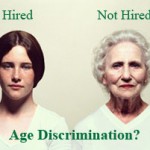 A central plank of the social business philosophy is that it enables organisations to be strictly meritocratic. It doesn’t matter who you are or where you sit in the org chart, your ideas will be judged strictly on their merits.
A central plank of the social business philosophy is that it enables organisations to be strictly meritocratic. It doesn’t matter who you are or where you sit in the org chart, your ideas will be judged strictly on their merits.
All of which sounds great in theory, but does it survive any kind of brush with reality? A study by Princeton has been exploring the impact our age has on how our opinions are views and reacted to.
The experiment saw participants shown a video of a man called Max. They were told that he would be their partner in a contest. What they didn’t know however was that they were being showed different versions of Max. Some were shown a 25 year old version, others a 45 year old Max and others a 75 year old Max.
Each version of Max delivered identical scripts with a single exception. Half of the time Max would be compliant, telling listeners he was a kind person who shared his wealth with family. The other half of the time however he was more assertive and said he felt under no obligation to share anything he earnt himself.
The students were then asked to give their thoughts about Max to the researchers. Here is where it gets interesting, for the participants who were shown the 25 or 45 year old version reacted in the same way to both, regardless of whether Max was compliant or assertive. When the 75 year old version was assertive however it provoked a strong negative reaction.
“If you want to be an aging gray panther, and speak your mind to your manager, that’s fine,” said Susan Fiske, a Princeton professor and a co-author of the study with Michael North, who recently completed his Ph.D. “But expect consequences.”
How can an age bias in the workplace be detected? Joanna Lahey from Texas A&M may have a solution. Back in 2005 she sent out over 4,000 CVs to companies for entry level jobs. The fake applicants ranged in age from 35 to 62 and were all female.
She found that despite the CVs being identical except for the ages, the younger applicants were 40% more likely to be offered an interview than applicants aged >50.
Countries around the western world are coming to grips with the demographic timebomb as baby boomers begin to retire en masse, but it appears that attempts to shift retirement ages back to offset the costs of retirement may suffer if employers don’t do more to allow older employees into the job market.
The Princeton study may have some guidance for policy makers, and indeed the population as a whole. They found that when participants were given a newspaper article stating that there would be plenty of resources to go around the generations, ie that boomers wouldn’t be sucking resources away from the young, then any age bias vanished. Of course for this to occur it would need to be true, but it gives a hint to how as a society we could get more older employees to stick around the workplace.
This is just one of many ways we judge people though isn't it? Of course it isn't fair, but to try and change it seems to be to try and change human nature.